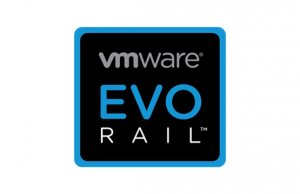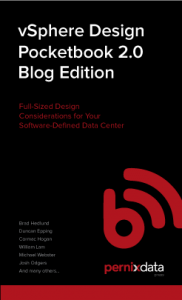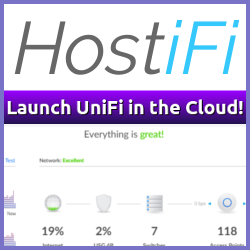I finally took the plunge, and sat the VDCA550 exam yesterday. The VCAP5-DCA certification has been on my todo list way to long, and I’m glad I can now tick that box and move on. The VDCA550 exam is held in a live lab environment, with approximately 23 lab activities, which is the subsequently scored after the exam is finished. This means that you do not get an immediate pass/fail summary at the end of the exam, but you’ll be feverishly checking your email until the score report is sent to you from VMware.
Another VMworld US is over, with huge attendee numbers and in keeping with tradition lots of new announcements were made. I’m not going to go through them, enough posts have been made about that, the basis of this post is something completely different all together.
There seems to be a general expectation that we as a community is to be wooed by the announcements and flashy keynotes, but are we really the target audience? If you think about it, we probably aren’t.
 VMware has finally announced what I’ve been speculating about for some time now, EVO:RAIL was announced at VMworld US this morning. Short story; It’s a HCIA (HyperConverged Infrastructure Appliance), offered through several hardware vendors, with a new integrated management solution.
VMware has finally announced what I’ve been speculating about for some time now, EVO:RAIL was announced at VMworld US this morning. Short story; It’s a HCIA (HyperConverged Infrastructure Appliance), offered through several hardware vendors, with a new integrated management solution.
Since I’m not at VMworld my self, I’ll leave the blog postings to those close to the action, but here is a quick collection of links to get you acquainted with the next EVOlution of SDDC from VMware:
VMworld US is very soon upon us, and I’m one of the jealous ones left behind not being able to attend. I will hopefully be able to join everyone at VMworld Europe in Barcelona on October though.
An interesting Twitter hashtag #AdviceForVMworld appeared a week or so ago, with lots of good advice for people attending a huge tech conference.
Here are a few good examples:
Finally. I’ve finally found a way to put two of my favourite things together in a completely non-sensical way, namely VMware Marvin and Pearl Jam. As The Register reported earlier today, odds are that Marvin no longer responds to it’s project name, but rather to the new EVO name recently trademarked by VMware. There has been whispers of a Marvin name change for quite some time, so this isn’t really hard to believe.
A customer of mine, who runs a pure HP environment based on c7000 and StoreServ 7200, wanted to get the HP Insight Control Storage Module for vCenter up and running. The problem was that while we were able to connect to the older MSA array they run for non-production workloads, we were unable to connect to the newer StoreServ 7200. There is full IP connectivity between the application server that the HP Insight components run on and the storage controllers/VSP (no firewalls between them, they are located in the same subnet).
It’s been a while since I tried speculating on the soon-to-be-announced VMware Marvin project, but some very recent VMworld US 2014 session additions look really interesting in that regard:
- SDDC1818 - VMware Customers Share Experiences and Requirements for Hyper-Converged
- SDDC2095 - VMware and Hyper-Converged Infrastructure
- SDDC1767 - SDDC at Scale with VMware Hyper-Converged Infrastructure: Deeper Dive
- SDDC3245-S - Software-Defined Data Center through Hyper-Converged Infrastructure
If you look at 1767 specifically, since the other sessions are still very light on details, it has a rather interesting description:
 Following the success of the first vSphere Design Pocketbook, PernixData has created a new version, this time dubbed “Blog Edition”. Where the first book focused on small “tweet sized” design tips, the new one allows for more in-depth articles, lifting the first editions 200 character limit.
Following the success of the first vSphere Design Pocketbook, PernixData has created a new version, this time dubbed “Blog Edition”. Where the first book focused on small “tweet sized” design tips, the new one allows for more in-depth articles, lifting the first editions 200 character limit.
 I was invited by Nick Martin and Tom Walat to join them in this pre-VMworld edition of the podcast, so if you’re not bored reading about my Marvin speculations already, you can now listen to them as well over at This Week in Virtualization by SearchServerVirtualization.
I was invited by Nick Martin and Tom Walat to join them in this pre-VMworld edition of the podcast, so if you’re not bored reading about my Marvin speculations already, you can now listen to them as well over at This Week in Virtualization by SearchServerVirtualization.
It also covers some expectation for VMworld 2014, which is rapidly getting closer.
While working on reconfiguring my home lab setup, and migrating all the vSphere resources into a single cluster I ran into a problem powering on one of the VMs which used to run on a single host. The power on operation yielded the following error message: Invalid memory setting: memory reservation (sched.mem.min) should be equal to memsize (memsize) Task Details: Status: Invalid memory setting: memory reservation (sched.mem.min) should be equal to memsize(4096).
About
vNinja.net is the digital home of Christian Mohn and Stine Elise Larsen.
The primary focus is on IT architecture and data center technologies like virtualization and related topics, but other content also pops up from time to time.